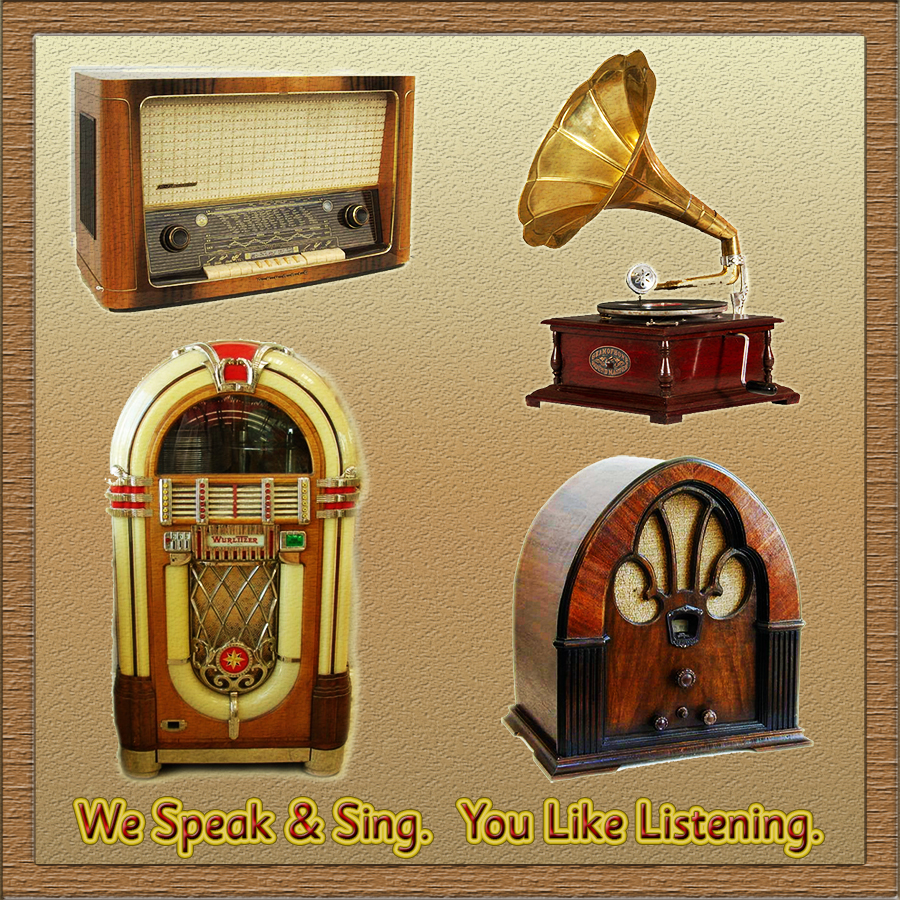Oads & Sonics
The post millennial computational arms race precipitated comprehensive controversy in a multitude of manifestations. None was more significant than the teeming generation of egotistical cyber socialites famous for their ability to talk in ever decreasing fragments of sentences without really listening to a single word each other was saying, because everybody else was quite obviously wrong or at least, not as right as they were. Fitness addicts, cultural commentators and dietitians were amongst the worst offenders, though a fourth group more than matched the palpable narcissism of those aforementioned and might well have exceeded their respective proportions. The group in question? Technophiles.
Now for another sliver of history. When anybody of an age employs the phrase “in the good old days,” invariably, they are referring to a fond period of their youth associated with pastimes that are unlikely, if not impossible to experience in the “bad new days”. It can also signify what the speaker considered to be a vastly more enriching and rewarding way of life. For example,
“The good old days, before television.”
So, how do these seemingly arbitrary observations conspire to retain your interest, assuming you’re not the type of person identified in this article’s opening paragraph, in which case, you’ll be long gone but thank you kindly for trying.
For those who remain, the answer concerns what many scientists would claim to be the last sense that we humans are aware of before our fleeting existence on Earth has expired. Sound.
Let us return to the ancient adage. In the good old days before television, a rich cocktail of literature and theatrics provided the lion’s share of visual entertainment, while sonic sustenance was derived from the some of the earliest and most endearing gadgets ever to be acquired without the aid of a logins, passwords, e-tailers or cryptocurrency. Furthermore, all were assembled to serve a committed and attentive audience capable of assimilating content which, though not initially embodying their keenest interests, ultimately proved both compelling and informative.
Such devices took on a variety of captivating forms, from large to little, short to long and square to arched, though all exuded a palpable aura of wondrous mystery, continually stimulating enchanted listeners with actual facts and frivolous fantasies from the resonant depths of their sumptuous wooden panels. Cue a slice of pictorial substantiation.

Then, a century of science, evolution and exponential commercialisation occurred, eventually forcing history to almost repeating itself.
The captions engraved upon these enlightening collages are a crude allusion to what distinguishes our two groups of oscillating curiosities. Members of the first were designed principally to entertain and in the process, educate, while those in the second were intended to monitor and learn from their masters. One might assert that such technological innovation was as useful as it was inevitable, though it could also be argued that what had been conceived to broaden the horizons of a culturally deprived and emotionally detached society, ironically served to compound this predicament. For how can people develop fresh interests without first being exposed to what they never knew existed?
A radio of ancient times was frequently branded a “wireless” and lived-up to this claim more convincingly than countless successors forged during the era when hi-fi became wifi. Families familiar with a wireless would gather round their magical receptacles to avail themselves of stories, news, tunes and trivia, much of which was presented by learned personalities who considered it their duty to divulge every last detail of the art they were so keen that others should share.
Parents and children would then converse with each other and acquaintances, discuss who or what they had heard, how and why and they enjoyed it and and thus, become accustomed to “wavelength” of somebody besides themselves.

Fast forward to an age of digital dissonance where the gimmick of “choice” had all but extinguished a desire for expertise and instead of our convivial family huddle in the lounge, we had mums, dads, sons & daughters scattered all over homes shouting at expensive plastic sculptures christened with gender neutral monikers that pretended to be their owner’s best friends but were in fact pernicious con-artists operating on behalf of their real masters, who only cared about the humble consumer’s hobbies, habits and cultural tastes if it meant they were able to monetise them, independently and insatiably.
Some could act as artificial PA’s, informing their “employers” of the local weather, traffic density, work deadlines, the ingredients required for a baked potato with cheese, or reminding them where they had placed various personal items such as spectacles, keys, socks, screw drivers and half-consumed cups of coffee. Previously, many of these topics had been attributed to “small talk” amongst humans within domestic or social environments.
Now, aside from the facility to field text messages for people who had abstained from vocal communication, these insidious lodgers could also speak on behalf of those wishing to conceal their real voices, or who couldn’t be bothered to climb ten stairs to tell their big sister that dinner was about to be served and oh, by the way, the bath was overflowing through the ceiling.
It was alarmingly easy for a perplexed and exasperated customer to purchase identical products from several providers because the guardians of these water tight eco-systems were far too obsessed with obliterating their rivals to bother with such constructive features as, say a competent virtual presenter that could discern between “Chopin”, “Chopping” and “Shopping” or inform the listener of specifics like artist, orchestra, composer, lyricist, record label, the date of a performance and whether it had been taken from a live concert or a studio recording of the same work made some years earlier.
The best one could hope for was a soulless binary DJ who assumed that because someone had listened to Mozart’s Turkish Rondo they might like to acquire the complete works of Mozart which just happened to be available on an exclusive promotional offer for the next five minutes and forty seconds to any customer naive enough not to realise that by grabbing this mega bargain, they’d voluntarily subscribed to an applicable streaming service which ended up costing double what they would have paid if they’d ignored the promotion and simply bought the Complete Works of Mozart, which of course they’d already done once when it had been released on CD, but those recordings had been lost shortly after being ripped and uploaded to a fully secure online music library which, coincidentally had been supervised and curated by a predecessor of the faceless cyber-jock that had flogged them the reissues.
Oh well, anything to keep the a progressively reclusive public occupied with radical and exciting of methods of maxing out their credit cards, especially if they share them with all their real friends!




